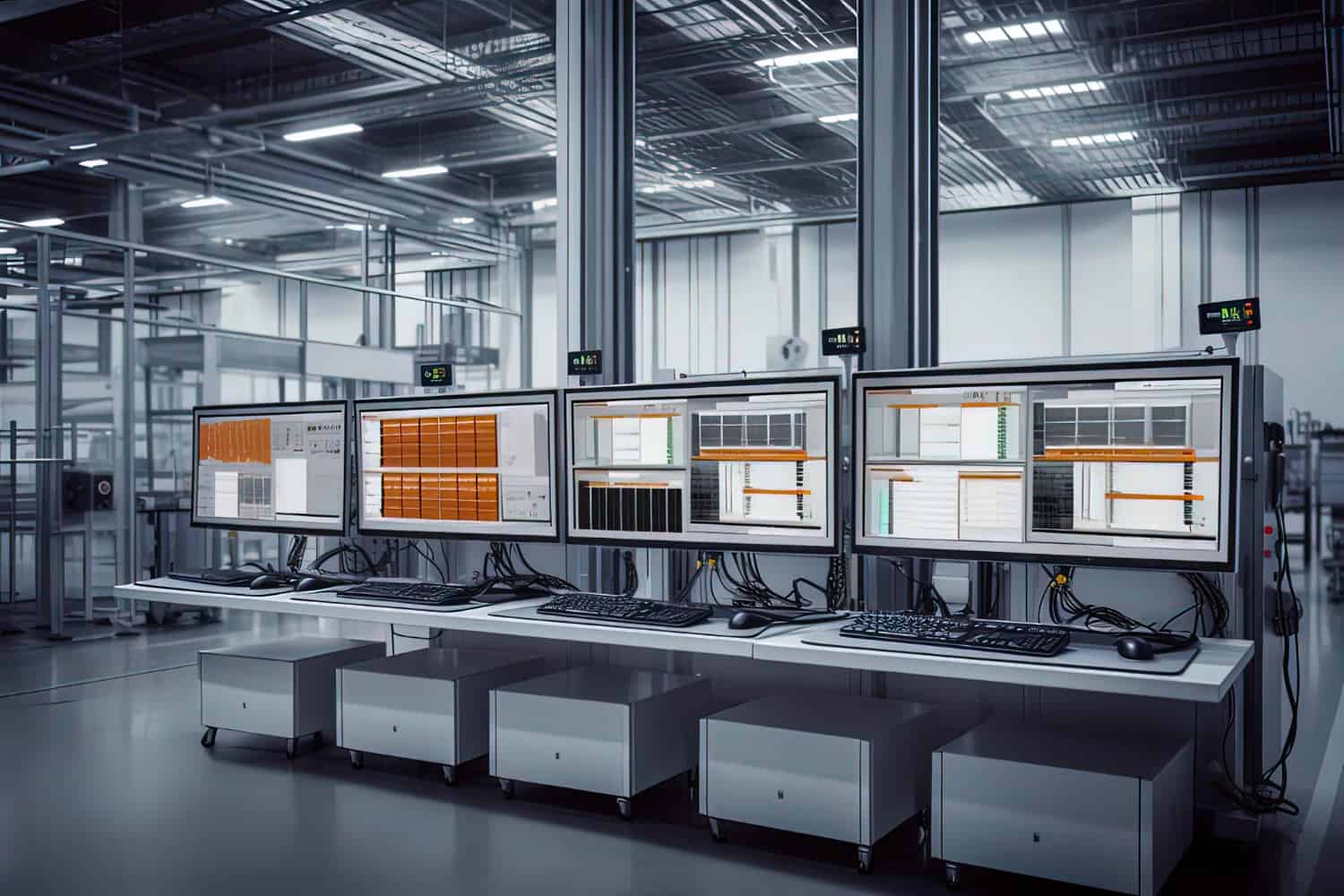
Manufacturing operations management can be a complicated and time-consuming process. From managing inventory to scheduling production, there are a variety of tasks that need to be completed to keep a manufacturing operation running smoothly. However, with the right strategies and tools in place, it’s possible to streamline these processes and make operations management more efficient.
In this blog post, we’ll explore some of the key techniques that can be used to streamline manufacturing operations management. Whether you’re a small business owner or a production manager at a larger organization, these tips can help you optimize your processes and achieve greater success.
The Role of IoT in Revolutionizing Manufacturing
The Internet of Things (IoT) has played a pivotal role in revolutionizing the manufacturing industry. By connecting physical devices and machines to the internet, manufacturers can gather real-time data and gain valuable insights into their operations. This connectivity has paved the way for the emergence of smart, networked workstations. These workstations are equipped with sensors, actuators, and communication modules that enable them to communicate with each other and the central control system.
Smart, networked workstations leverage IoT technology to create an interconnected ecosystem within the manufacturing environment. This connectivity allows for seamless integration of various processes, resulting in increased efficiency and productivity. Manufacturers can monitor and control multiple workstations simultaneously, enabling real-time decision-making and optimization. With IoT-enabled workstations, manufacturers can gather data on machine performance, production rates, and quality control metrics, allowing them to identify bottlenecks, optimize workflows, and make informed decisions to enhance overall productivity.
Benefits of Smart, Networked Workstations in Manufacturing
The integration of smart, networked workstations in the manufacturing industry brings a multitude of benefits. Firstly, these intelligent machines improve operational efficiency by minimizing downtime and reducing manual intervention. With real-time data exchange and connectivity, manufacturers can identify and address issues promptly, preventing costly delays and disruptions. This proactive approach to maintenance and troubleshooting results in increased uptime and optimized production schedules.
Secondly, smart workstations enhance quality control by providing manufacturers with real-time insights into the manufacturing process. These workstations can collect and analyze data on product quality, enabling manufacturers to identify defects or inconsistencies early on. By implementing automated quality control checks and leveraging machine learning algorithms, manufacturers can minimize the risk of defective products reaching the market, ensuring customer satisfaction and brand reputation.
Thirdly, smart, networked workstations enable manufacturers to achieve higher levels of productivity. With interconnected workstations, manufacturers can optimize production lines, streamline workflows, and eliminate unnecessary manual tasks. Automation and data-driven decision-making allow for faster and more accurate production processes, resulting in increased output and reduced lead times.
Key Features and Capabilities of Smart Workstations
Smart, networked workstations come equipped with a range of key features and capabilities that enhance their functionality. Firstly, these workstations are equipped with sensors and actuators that enable real-time data collection and control. These sensors monitor various parameters, such as temperature, pressure, and speed, allowing manufacturers to gather insights into machine performance and product quality. Actuators, on the other hand, enable remote control and adjustment of workstation settings, optimizing production processes.
Secondly, smart, networked workstations leverage advanced communication modules to connect with other workstations and the central control system. This connectivity enables seamless data exchange and synchronization, facilitating coordinated production and decision-making. With real-time insights and communication, manufacturers can respond quickly to changing demands and optimize production schedules accordingly.
Thirdly, smart, networked workstations often incorporate machine learning algorithms and artificial intelligence (AI) capabilities. These advanced technologies enable predictive maintenance, anomaly detection, and optimization of production processes. Machine learning algorithms can analyze large volumes of data to identify patterns and trends, enabling manufacturers to make data-driven decisions and optimize workflows.
Implementing a Smart, Networked Workstation Strategy
Implementing a smart, networked workstation strategy requires careful planning and coordination. Manufacturers need to assess their current infrastructure, identify areas for improvement, and determine the scope and scale of the implementation. It is crucial to select the right hardware and software solutions that align with the specific requirements of the manufacturing processes.
Additionally, manufacturers should consider the cybersecurity implications of implementing smart, networked workstations. With increased connectivity comes an increased risk of cyber threats and data breaches. It is essential to implement robust security measures, such as encryption, authentication protocols, and regular vulnerability assessments, to protect sensitive data and ensure the integrity of the manufacturing processes.
Furthermore, training and upskilling employees are critical for successful implementation. Manufacturers should invest in training programs to familiarize employees with the new technologies and workflows. By empowering employees with the necessary skills and knowledge, manufacturers can maximize the benefits of smart, networked workstations and foster a culture of innovation and continuous improvement.
Industry Trends and Innovations in Smart Manufacturing
The manufacturing industry is continuously evolving, and smart manufacturing is at the forefront of this transformation. Several trends and innovations are shaping the future of smart, networked workstations. One such trend is the integration of augmented reality (AR) and virtual reality (VR) technologies into the manufacturing environment. AR and VR can enhance training programs, provide real-time guidance to operators, and enable remote collaboration, further improving productivity and efficiency.
Another trend is the integration of big data analytics and machine learning algorithms into smart, networked workstations. By analyzing vast amounts of data, manufacturers can gain valuable insights into their operations, enabling proactive decision-making and optimization. Predictive maintenance and anomaly detection algorithms can identify potential issues before they occur, minimizing downtime and optimizing production schedules.
Additionally, the emergence of 5G networks is set to revolutionize smart manufacturing. With faster and more reliable connectivity, manufacturers can leverage real-time data exchange and enable remote operations. This will enable manufacturers to achieve unprecedented levels of efficiency, flexibility, and responsiveness.
The future of smart, networked workstations in manufacturing is promising. As technology continues to advance, these intelligent machines will become even more sophisticated and capable. The integration of AI, machine learning, and robotics into smart workstations will further enhance productivity, quality control, and decision-making.
Furthermore, the increasing adoption of cloud computing and edge computing technologies will enable manufacturers to store and analyze vast amounts of data in real-time. This will facilitate predictive maintenance, optimization of production processes, and seamless integration with other systems.
Moreover, as the manufacturing industry embraces sustainability and environmental responsibility, smart, networked workstations will play a crucial role in enabling energy-efficient and eco-friendly production processes. By optimizing workflows, reducing waste, and minimizing downtime, manufacturers can achieve significant cost savings while reducing their carbon footprint.
Made for production, manufacturing, and beyond:
If you’re interested in seeing the benefits of smart workstations in action, we invite you to sign up for a free demo today. Our team will work with you to understand your specific needs and build a custom solution that’s tailored to your business.

Smart, networked workstations have revolutionized the manufacturing industry by combining cutting-edge technology with increased connectivity. These intelligent machines enable manufacturers to streamline operations, make data-driven decisions, and achieve higher levels of productivity and efficiency. With real-time data exchange, automation, and connectivity, manufacturers can optimize production processes, enhance quality control, and reduce downtime.
The manufacturing industry is entering a new era of manufacturing excellence:As technology continues to advance, the future of smart workstations in manufacturing looks promising, with further enhancements in productivity, sustainability, and decision-making capabilities., powered by the power of smart, networked workstations.












